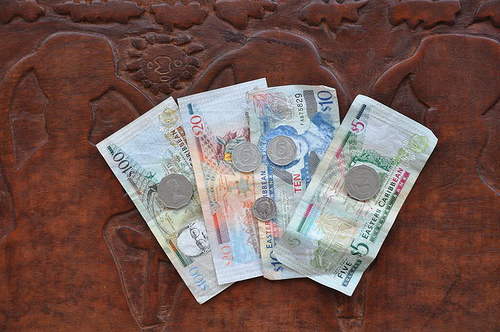It’s countdown time for this 69-day BreakAway in the Caribbean—a bittersweet time that brings a high tide of introspection. “Why” I do this (Sabbaticals) is clear as Caribbean waters to me (and frequently babbled about on this website). But now I ponder a question sure to await when we get back home…
- “How the hell do you do it?”
It’s simple, really:
Just Do It.
But to provide the financial wherewithal that can fuel that bravado, I strive to live by
11 Commandments of fiscal fitness, the first of which is “Live within your means, no matter what that means.”
At some point, if these commandments work, money need not be an ongoing stressor.
And life is too short to let money completely dictate your dreams.
Living within your means can sometimes mean avoiding things like expensive cars and debt (except a modest mortgage). Such steps usually will ensure that savings happen. So when some savings align with a good time to BreakAway, poof! It’s time to disappear, and let some money buy free time and thought—since you’ve “earned” this reward.
- Money flows and money goes.
Everyone loves money. Yet money seems to be bringing everybody down these days, from Grenada to China to across the Americas. I’ve stubbornly avoided news and market updates; they’re depressing and one goal of this BreakAway is to Be Here Now and nurture long-term wisdom. But you can’t escape the bad news.
Even on isolated islands, taxis say they’re half as busy as usual. Resorts are throwing in free meals, happy hours, upgrades, and everything but the towel to get some cold bodies to warm their beach chairs. Beach vendors are cutting deals on carvings, spices, and lobster. It’s the middle of a harsh winter—and eerily quiet in vacationland. Even in the popular eateries and attractions, you could hear a coin drop.
Suddenly, the old adage is true: Everything is negotiable when times are tough. It feels suspiciously like deflation. Debt detonation. Depression.
- And yet, work/life hackers are everywhere
So it’s good to get away. But the best reasons are not escape and avoidance, but rather the people. I swear: Both residents and travelers on an island like this have pretty much written their own rule books. Nobody’s “normal.” Status quo is for seekers who quit. And while few folks harbor that aggressive American trait of wanting to tell you their life’s story, the stories amaze.
- Franny and Isaac come from completely different places, and now live on his family’s Grenada farmland where they raise cabbages, make art, and live simply.
- Native Grenadian Joan walks the beach selling her handmade dolls and colorful shirts. She’s no pest: She’s one of their genial “licensed vendors.” If you like a pattern but she has no shirt in your size, she’ll make you one overnight—for US$20.
- A Danish couple works hard running two movie theaters, but pulls their kids out of school to show them the world when the spirit moves them.
- Andy and Rebecca live simply (as in, off the electrical grid) the warm season in Maine, where she’s an organic gardener and he’s a fisherman. With kids now in college, they save enough to spend winters on their favorite island, where she sells her watercolors.
- Two Swedes and their three kids manage school and careers, but think nothing of taking 22 days to sail across the Atlantic and to spend some months in the islands before they figure out how to store their boat here and return home.
They’re everywhere—once you wander. They’re my inspiration. And I’ll miss being surrounded by them.
- It’s so NOT about the money.
These folks don’t share much in common. But there is one little thing: They’re not rich. Nor are they tied to their credit cards, or the emotions of economics. So although cabbage growers and cinema owners may feel the slowdown, they won’t let it ruin their day, year, or overall outlook on life.
Frankly, this has been a good time to BreakAway. The crowds are smaller. The service is better. The locals have more time and seem less harried than might occur when too many tourists invade.
Grenadians are mysteriously optimistic people. When talking shop with dozens, I’ve not heard one complain about “hard times” or “feeling the pain.” If anything, they’ll use it as a chance to preach a lesson:
I tink it maybe be a good ting…People needs to slow down and jus’ enjoy what dey got and stop going into so much debt…”
When watching my son get a 45-minute, oh-so-careful haircut (for $2.80) in a local village here, I paged through some old papers. In one, dated October-something, the Grenada government was running an ad that says it all:
“Manage Your Money. Live Your Dreams. October is National Financial Literacy Month.”
Grenada is a third-world nation with some obvious poverty. But the people eat well, take care of one another, and show few signs of greed.
Perhaps one day the USA will sponsor a National Financial Literacy Month.
Until then, debt be not proud. And keep saving your dreams.




















